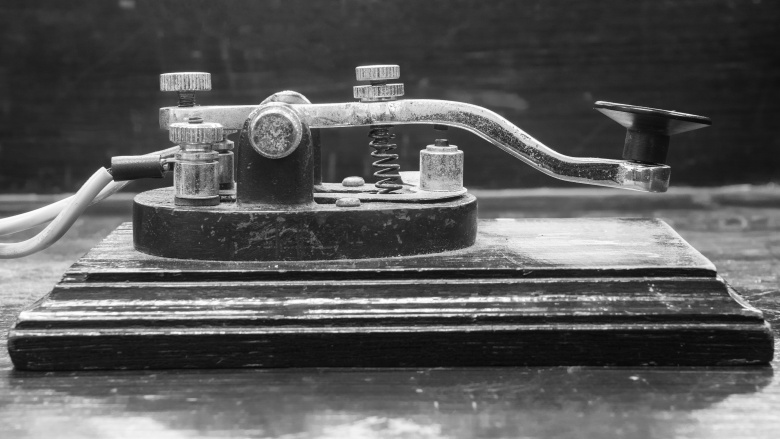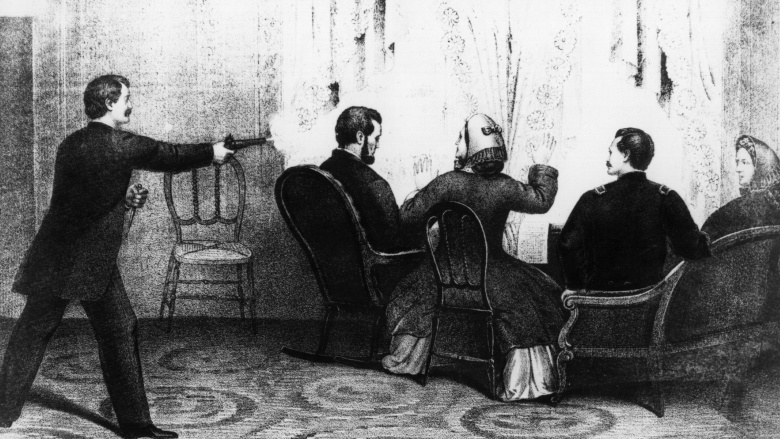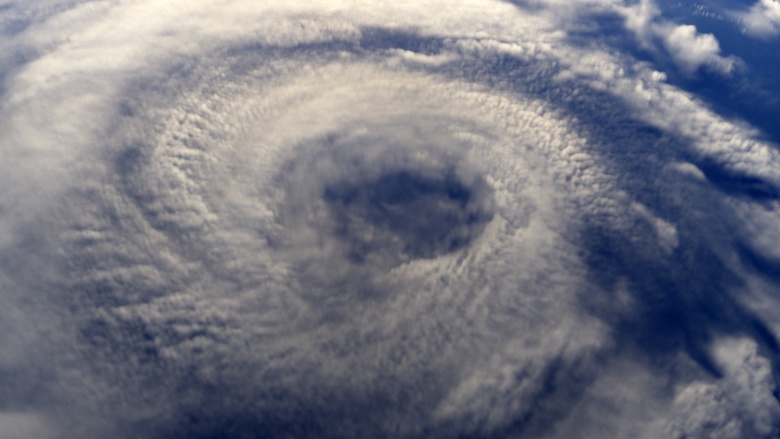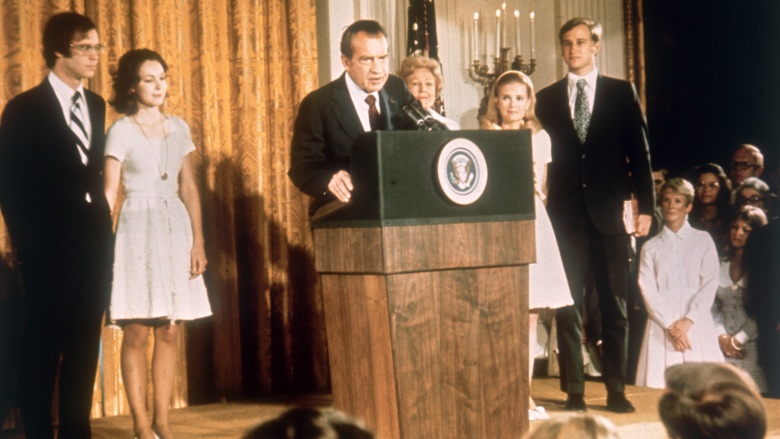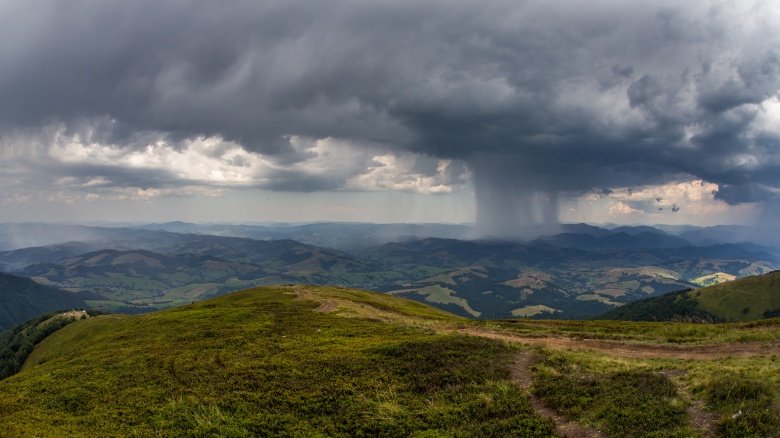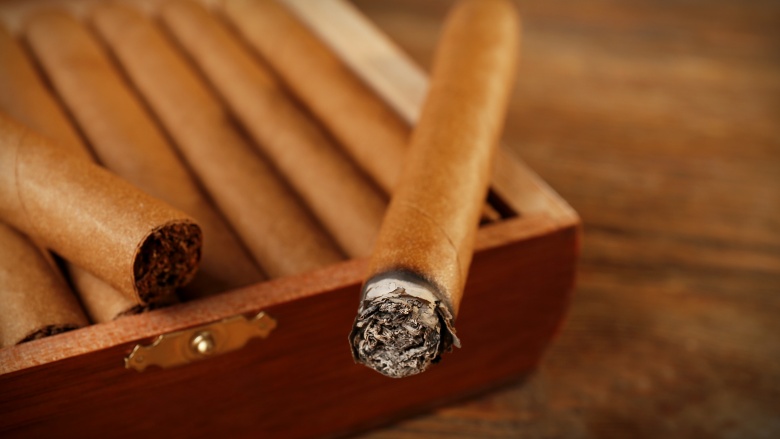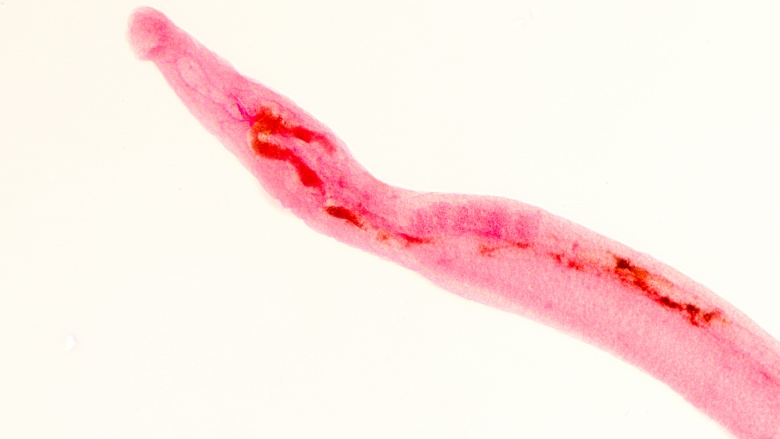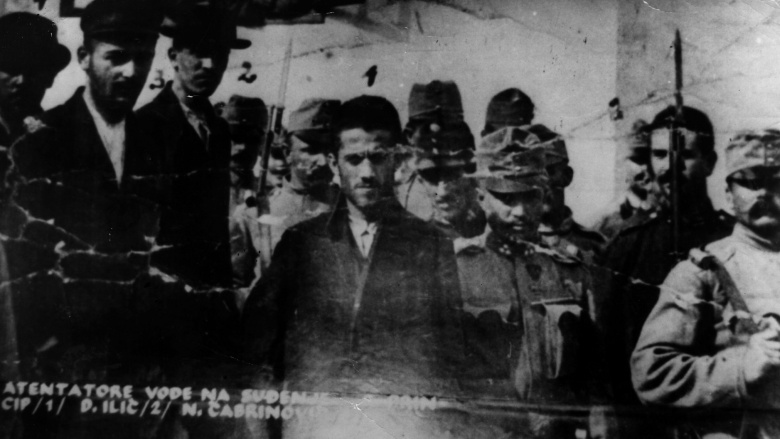Freakish Twists Of Fate That Changed History Forever
Sometimes, history is mapped out by great leaders with big plans. But more often than not, it's shaped by freakish twists of fate. In fact, some of the most important events in human history were the results of random moments, minor mistakes, and crazy coincidences.
A woman's death changed the way people communicated
There are only a handful of people who've truly changed the world. Samuel Morse is one of those people. While he didn't invent the telegraph, Morse certainly improved it. Before he came along, the device was impractical, as it needed 26 wires to work. Morse cut it down to one. Soon, Morse was stringing up wires across the US and, eventually, the telegraph was reaching across the ocean. Now, President Lincoln could get immediate updates on Civil War battles, journalists could instantly send stories overseas, and average citizens could communicate with anyone, anywhere, just like that.
Sadly, the entire system was built on the death of one woman. Before he changed the world, Morse was a painter in Connecticut. One day in 1825, he was hired to paint a portrait of the Marquis de Lafayette, and he set off for Washington DC to meet the Revolutionary hero. However, as he worked on the portrait, a rider appeared with a letter from home. The message read, "Your dear wife is convalescent." Panic-stricken, Morse stopped everything and ran back to Connecticut. Tragically, by the time he returned, his wife was already buried. In his grief, Morse began to lament that he could've gotten to his wife's side to say goodbye, if there were only some way of sending messages instantly.
Almost 20 years later, Morse sent his first telegraphic message from Baltimore to Washington.
Lincoln's bodyguard (and a terrible cop) got him killed
Before the Secret Service started protecting presidents in 1902, watching out for the commander-in-chief was a tricky issue, especially when it came to someone like Abraham Lincoln, who didn't really care for bodyguards. Nevertheless, the US marshal of Washington DC, Ward Hill Lamon, insisted on following Lincoln around in public. Lamon was a big man who often carried a Bowie knife and a brace of pistols, and as he was Lincoln's personal friend, he did his best to keep the president safe.
Of course, Lamon wasn't Lincoln's only defender. In November 1864, the DC police created a four-man team to keep the president safe. However, one of these officers was the worst cop in Washington. John Frederick Parker had a lengthy record of infractions, including sleeping, drinking, and visiting prostitutes on the job, and that guy was tasked with watching Lincoln at Ford's Theatre on April 14, 1865. However, instead of dutifully guarding the president, Parker left his post so he could get a better view of the play, Our American Cousin. Even worse, during intermission, Parker decided to wet his whistle at a nearby saloon.
Sadly, Ward Hill Lamon wasn't at the theater that night, either — Lincoln had sent his bodyguard on a mission to Virginia the day before. So when John Wilkes Booth showed up, the president was totally exposed. And while Parker never owned up to his mistake, Lamon later lamented, "As God is my judge, I believe if I had been in the city, it would not have happened and had it, I know the assassin would not have escaped the town."
The Napoleonic Wars led to the discovery of a deadly disease
The Napoleonic Wars were jam-packed with crazy twists of fate, such as what took place in Wurttemberg, a kingdom in southern Germany. This region was hit pretty hard by Napoleon's conquests. As a result, people stopped focusing on things like food sanitation, especially in rural areas. Soon, people were getting deathly ill, especially those snacking on blood sausages. The Wurttemberg government even issued a warning encouraging people to pass on the pork, though nobody knew why the sausage was making everyone sick.
Well, nobody except a poet-cum-doctor named Justinus Kerner. Curious to learn what was happening, the 29-year-old physician examined 200 separate cases, fed extracts of infected meat to different kinds of animals, and even tried some himself. In the end, Kerner discovered the so-called "sausage poison" was a neurotoxin that blocks nerve function, paralyzes muscles, and causes death through respiratory and cardiac failure.
While Kerner never could isolate the toxin, he did discover what's possibly "the most poisonous poison" known to man. Today, this sausage poison is known as botulinum, the toxin that causes botulism. And when it isn't killing people, doctors use it to help cerebral palsy patients with contracted limbs, and movie stars use it in the form of Botox to make themselves look like plastic.
The storms that saved Japan
If you were alive in the 13th century, you didn't want to mess with the Mongols. Thanks to Genghis Khan and his horsemen, the Mongols created the largest contiguous empire in history. Even after Genghis kicked the bucket, the Mongols kept on conquering, and with Genghis' grandson, Kublai Khan, running the show, the Mongols turned their attention to Japan. In 1274, the Mongols sailed across the Korea Strait, but met fierce samurai resistance at the Battle of Bun'ei. Needing to reformulate their game plan, the Mongols returned to their ships ... and that's when the weather got involved. A massive typhoon ripped across Japan, destroying one-third of the Mongol fleet and forcing the invaders to turn tail.
But Kublai Khan wasn't one to give up easily. In 1281, the Mongols returned for Round Two, and this time, they weren't messing around. They attacked Japan with over 4,000 ships and 140,000 men. After capturing Iki Island, the Mongols sailed toward Kyushu, the southernmost of Japan's islands, where they lost the Battle of Koan. Unfortunately for the Mongols, they didn't get chance to avenge their loss. Against all odds, another typhoon showed up and ravaged Kyushu for two days straight. The winds turned the Mongolian fleet into toothpicks, convincing Kublai Khan that he should leave Japan alone.
Over time, these typhoons became a part of Japanese lore, and it was said the Emperor summoned the storms himself. And because many believed these storms were supernatural, the typhoons were called kamikazes, a word that means "divine wind." In a dark twist, that word was later used to describe Japanese pilots who crashed their planes into enemy ships during World War II. Only that time, the divine wind wouldn't save Japan from its foes.
Watergate was discovered thanks to scotch tape
Richard Nixon was a narcissist, and that's probably why he thought it was a good idea to record all his Oval Office conversations. Eventually, those tapes outed him as a crook, but it was a completely different kind of tape that really cost him the White House. On May 27, 1972, burglars broke into the Democratic headquarters at the Watergate office complex and bugged the place. On June 17, five of them were sent back into the building to fix some malfunctioning microphones. When the crew arrived at the Watergate garage, they had to unlock a door to get inside the complex, and that's when one of the burglars — James McCord — made a big mistake: he put a piece of tape over the door lock.
You see, McCord was trying to plan ahead. If his gang was spotted in the building, they wouldn't have time to pick locks while trying to escape. So McCord slapped a piece of tape over the lock so he could open the door without a problem. Except, McCord put the tape on horizontally instead of vertically, so even when he shut the door all the way, you could still see the tape. Later, a security guard named Frank Wills spotted the tape, assumed it was left there by a cleaning crew, ripped it off, and kept walking. But then, like a scene from a screwball comedy, McCord returned, discovered the tape was gone, and put another piece over the lock. Again, this super spy put the tape on the wrong way.
This time, when Wills came back by, he noticed the fresh tape on the door, realized something was awry, and called the cops. The rest, as they say, is history.
The rain helped the British conquer India
Once upon a time, England controlled the biggest empire in history, and the crown jewel of its kingdom was India. But how did such a tiny country take control of such a massive one? Well, it was all thanks to a bit of rain. In 1757, the British were building fortifications in the city of Calcutta, which wasn't okay with the new nawab (ruler) of Bengal. His name was Siraj ud-Daula, and he felt threatened by this construction project. Wanting to assert control, the nawab rode into the city and kicked the British out.
Naturally, this didn't sit well with the Europeans, particularly members of the East India Company. Ticked off, the trading company sent their own private army to regain Calcutta. Led by Robert Clive, the Brits quickly took the city, but they weren't finished with Siraj yet. They followed the nawa to the village of Plassey where the two sides squared off. At this point, Siraj had a major advantage. He commanded an army that had between 40,000 and 60,000 men, plus war elephants and 53 pieces of artillery manned by French crews. Clive, on the other hand, had about 3,000 troops, two howitzers, a couple of cannons, and no elephants. The British were literally outgunned ... but they had Mother Nature on their side.
Around noon on June 23, it started raining cats and dogs. The British quickly covered their cannons and ammo with tarps, but for some reason, the Indians neglected to keep their powder dry. So once the rain stopped, their guns were useless — shockingly, the nawab assumed the British cannons weren't working either, so his men charged straight at the Europeans. As you can guess, that didn't work out so well. Making things worse, Siraj was betrayed by his companion, Mir Jafar, and the British dominated the battlefield.
Victorious, the Brits then picked Jafar as the new nawab, and with their man in charge, they effectively took control of India. They would keep on running the show until some guy named Gandhi showed up.
Jackie Kennedy saved her husband's life
While he didn't even finish one term, John F. Kennedy accomplished a lot as president, establishing the Peace Corps, kickstarting both the Vietnam War and the path toward the Moon Landing, prevented nuclear armageddon during the Cuban Missile Crisis, and championed what would become the Civil Rights Act of 1964. So how different would the world look if Kennedy had been killed before he took office? That almost happened on December 11, 1960. Kennedy was spending time with his family in Palm Beach, Florida, unaware of a madman waiting outside his mansion. The would-be assassin was Richard Pavlick, a 73-year-old retired postal worker from New Hampshire who hated Kennedy's guts. He thought JFK had bought his way into the White House — Pavlick later said, "I wanted to teach the United States [that] the presidency is not for sale."
How did Pavlick plan on teaching this lesson? By rigging his car with dynamite and driving into JFK's limo, naturally. Parked outside Kennedy's house, Pavlick actually had the detonator in his hand, and when Kennedy left for Sunday Mass, Pavlick and the president-elect would go out with a bang. But to the old man's dismay, Jackie Kennedy and their two kids were also riding along. Since he didn't want to kill the whole family, Pavlick drove away, determined to get Kennedy later. Obviously, he never got his second chance, as a suspicious friend tipped off the cops. Pavlick spent the next few years in an institution, was eventually released in 1966, and died in 1975, almost twelve years after Kennedy was murdered.
The Civil War turned thanks to some missing cigars
In September 1862, the American Civil War was raging, and the Confederate army was getting ready to make a gutsy move. General Robert E. Lee wanted to invade the North, with a plan that involved splitting his forces into four or five groups. These units, each separated by about eight miles, would press forward into Union territory and capture key Yankee cities. Lee's battle plans were written down and handed out to his officers but, somehow, a general named Daniel Hill lost his orders, and it altered the course of the war.
A few days later, on September 13, a Union regiment rolled into a field near Frederick, Maryland. As the soldiers began searching the area, they found a piece of paper inside an envelope, along with a couple of cigars (Hill's, most likely). After looking the paper over, they knew they had something big. The letter was passed up the ranks all the way to General George B. McClellan, who realized he had Special Orders No. 191, Lee's invasion plans in his hands. For a military man, this was a dream come true.
Thanks to this miracle find, Union forces intercepted the Confederates near Antietam Creek in Maryland. The resulting Battle of Antietam was the single bloodiest day in US history — around 23,000 soldiers died in action. Antietam forced Robert E. Lee to retreat back into the South, and it also encouraged Abraham Lincoln to issue the Emancipation Proclamation.
A parasite saved Taiwan
In 1949, the Chinese Civil War had finally come to an end. Mao Zedong's soldiers had defeated General Chiang Kai-shek's Nationalist troops, and now the Communists were running China. With nowhere else to go, the Nationalists fled to Taiwan, an island that China acquired in 1945. Of course, the Communists wouldn't let them go that easily, and they immediately began planning an invasion. However, the assault would be a bit tricky, as the Chinese would first have to sail across the Taiwan Strait. But there weren't a lot of ports on the island, so the Communists couldn't dock their ships. Forced to get creative, the Chinese planned to load their troops into wooden junks, sail across the strait, and once they got close enough, all the soldiers would jump overboard and swim to the island.
But before they could launch their aquatic assault, the Communists would need a few swimming lessons. So thousands of troops began practicing their breaststroke in streams and irrigation canals in southwest China. Unfortunately for them, those rivers and ditches were crawling with a nasty parasite called Schistosoma japonicum: the "blood fluke." These worms infect people by passing through the skin and making themselves at home in human blood vessels. The flukes then lay lots of eggs, which are then passed through human waste. Naturally, if your veins and organs are crawling with worms, you're going to get sick. Soon, between 30,000-50,000 Communist troops were battling severe cramps, fever, diarrhea, and death.
Obviously, the Chinese had to cancel their invasion. But before they could reschedule their attack, the Korean War broke out, and American warships parked themselves in the Taiwan Strait, ruining the Communists' plans. Thanks to those parasites, Taiwan is still around today.
The entire 20th century was shaped by one driver making a wrong turn
On his popular podcast, Hardcore History, historian Dan Carlin claimed that Gavrilo Princip was the most important person of the 20th century. He wasn't just being silly.
A Bosnian Serb, Princip was furious that his country was run by the Austro-Hungarian empire. Princip wasn't the only guy who felt this way, as he was a member of a terrorist group that wanted to send the world a bloody message. So when Princip learned the Archduke Franz Ferdinand, heir to the Austro-Hungarian throne, was headed to the city of Sarajevo, he knew it was time to act. On June 28, 1914, Princip and several other assassins gathered along a Sarajevo street, waiting for Ferdinand to pass. When the royal motorcade appeared, one of Princip's comrades lobbed a grenade at the archduke, but the bomb was deflected, and Ferdinand survived.
At first, it seemed like Princip had lost his chance. But in a bizarre twist of fate, as Ferdinand was traveling back through the city, his driver took a wrong turn ... onto the street where Princip was standing. As the driver put the car in reverse, Princip shot both the archduke and his wife to death. Princip was arrested and spent the rest of his days in prison, before dying of tuberculosis in 1918. But Princip's gunshots launched World War I, a devastating conflict that set up World War II, the atomic bomb, and the Holocaust. In turn, the Holocaust played a part in the rise of modern-day Israel. Plus, World War I sparked the Russian Revolution, which gave birth to the USSR and the Cold War. World War I also destroyed the Ottoman Empire, and reshaped the Middle East. Really, the list goes on and on. World War I truly altered the course of history, and it was all because one driver turned down the wrong street.

